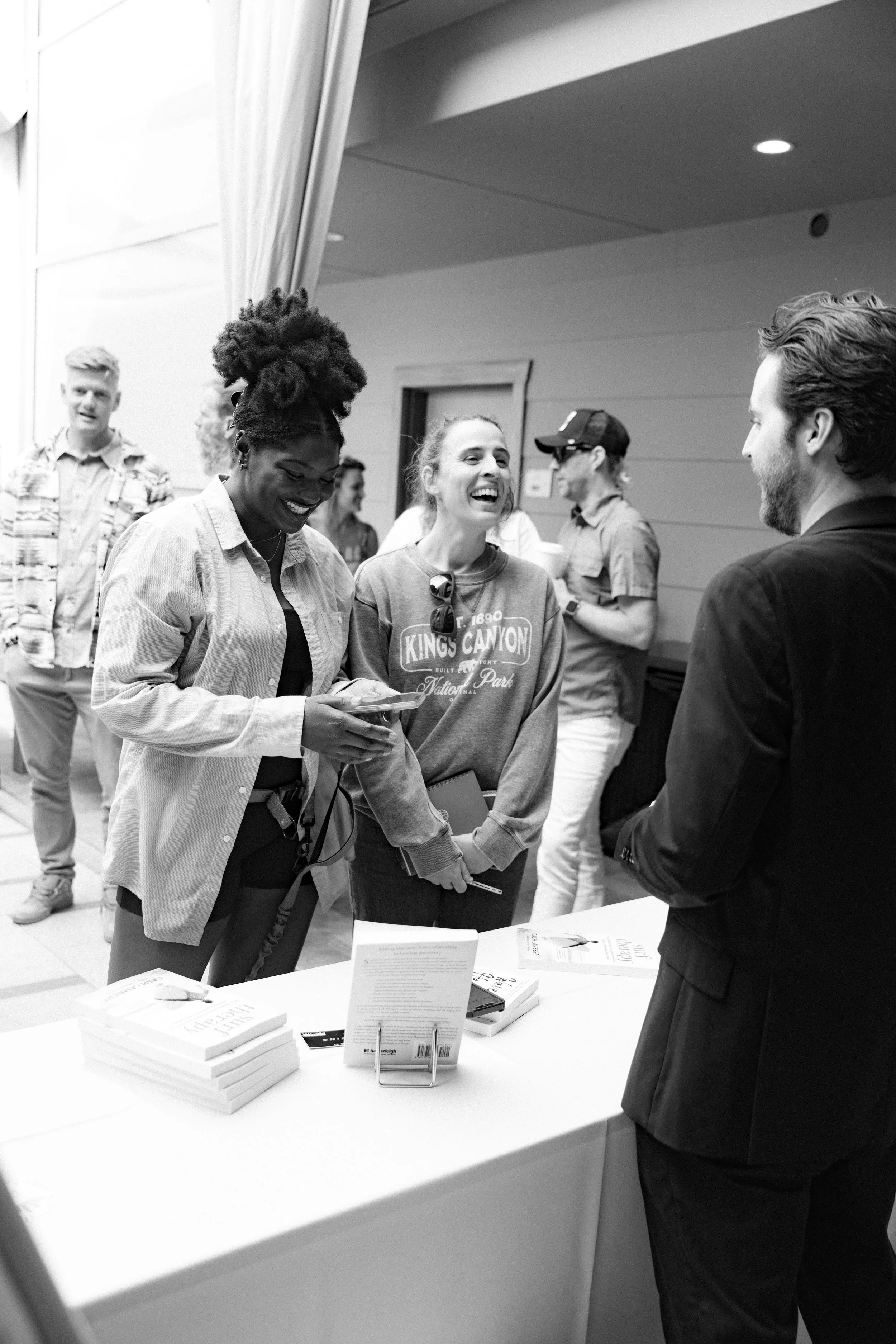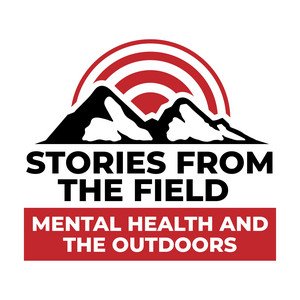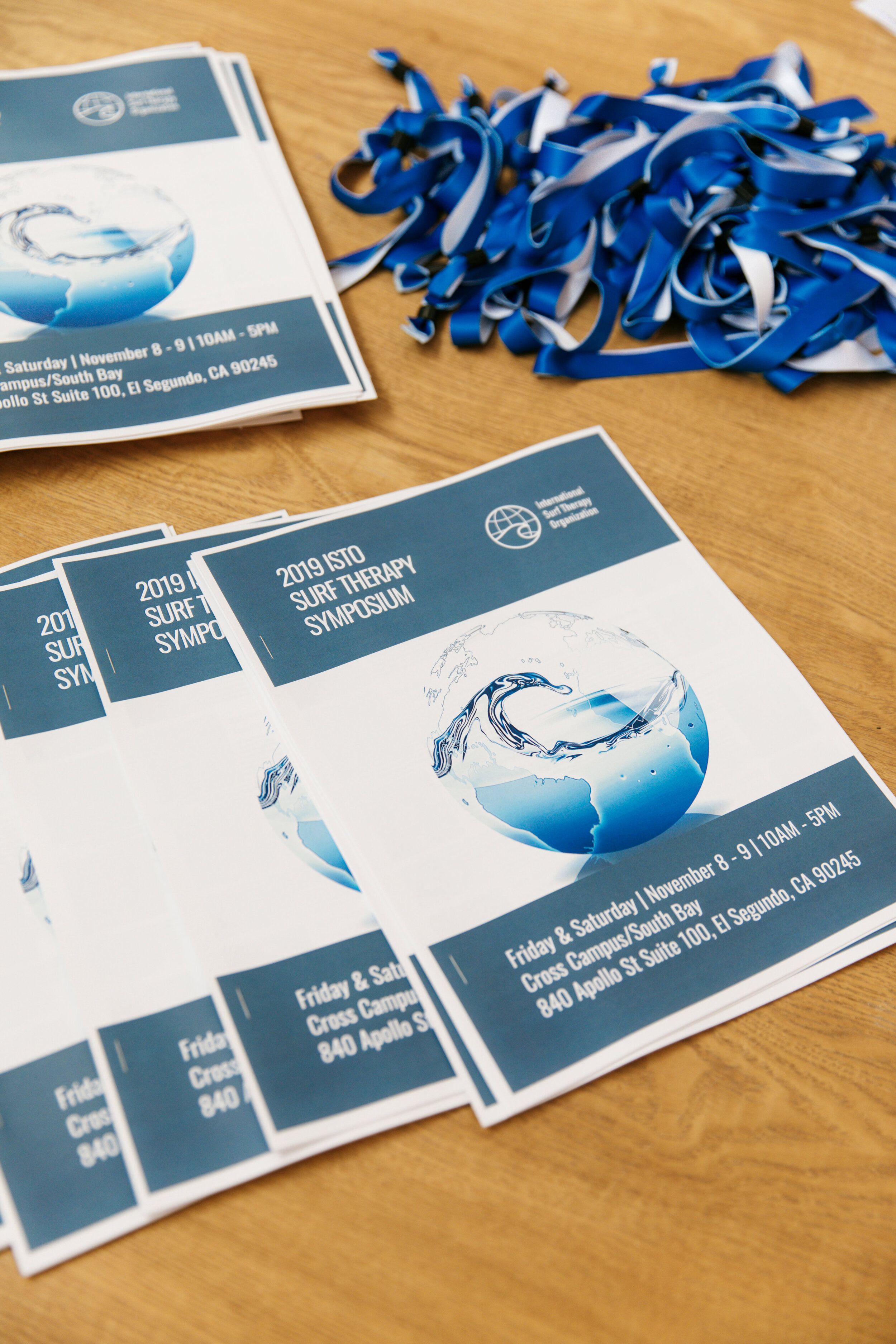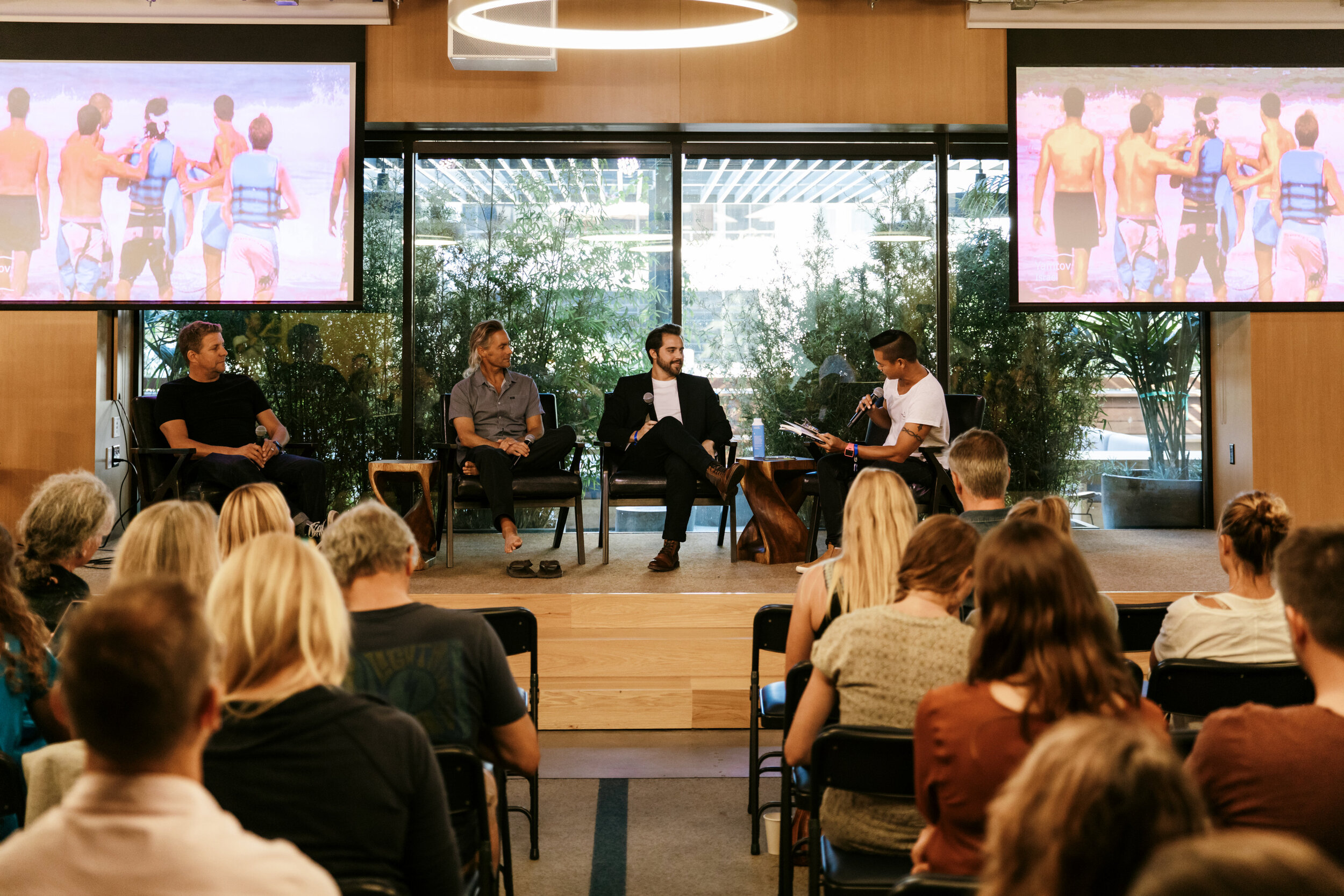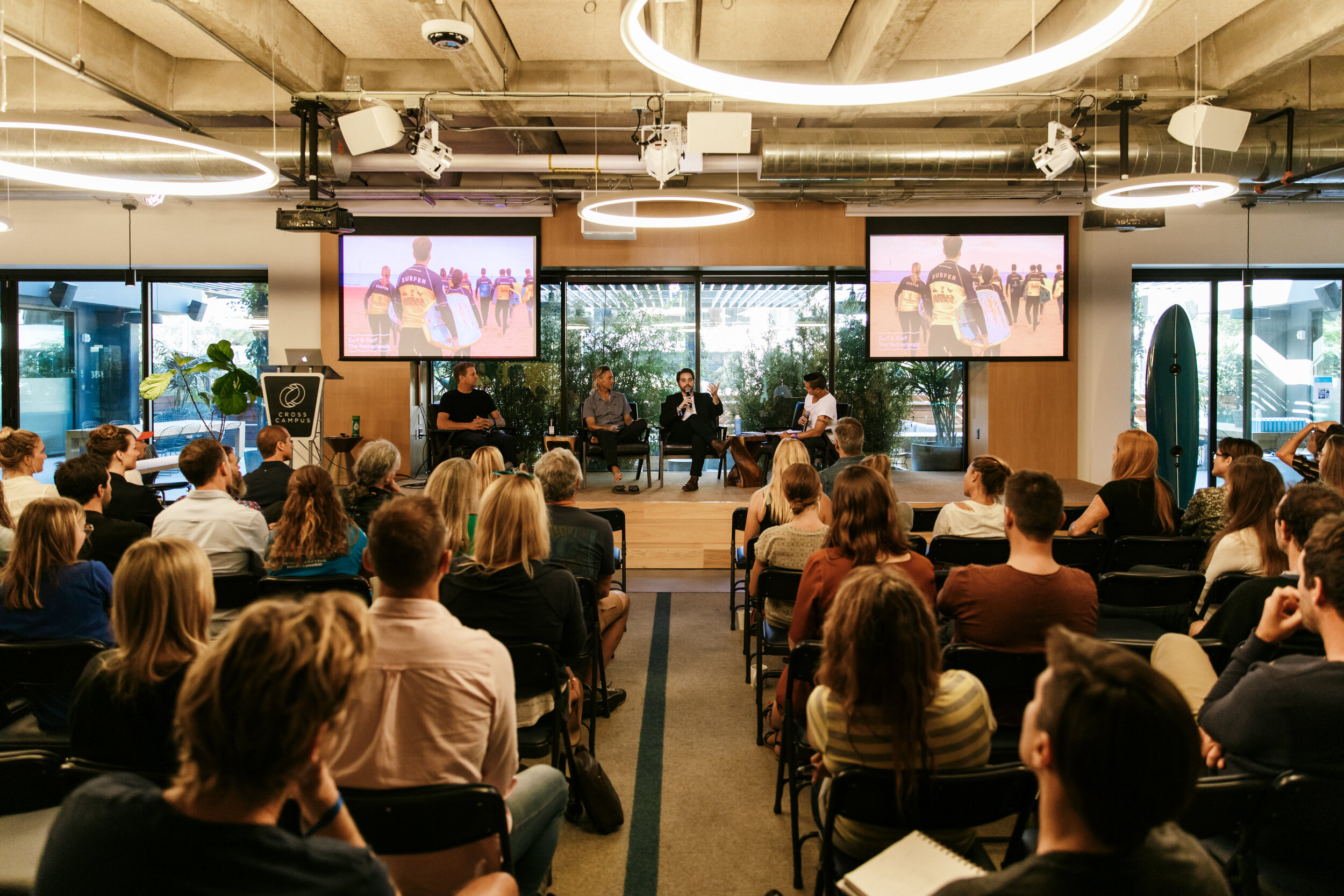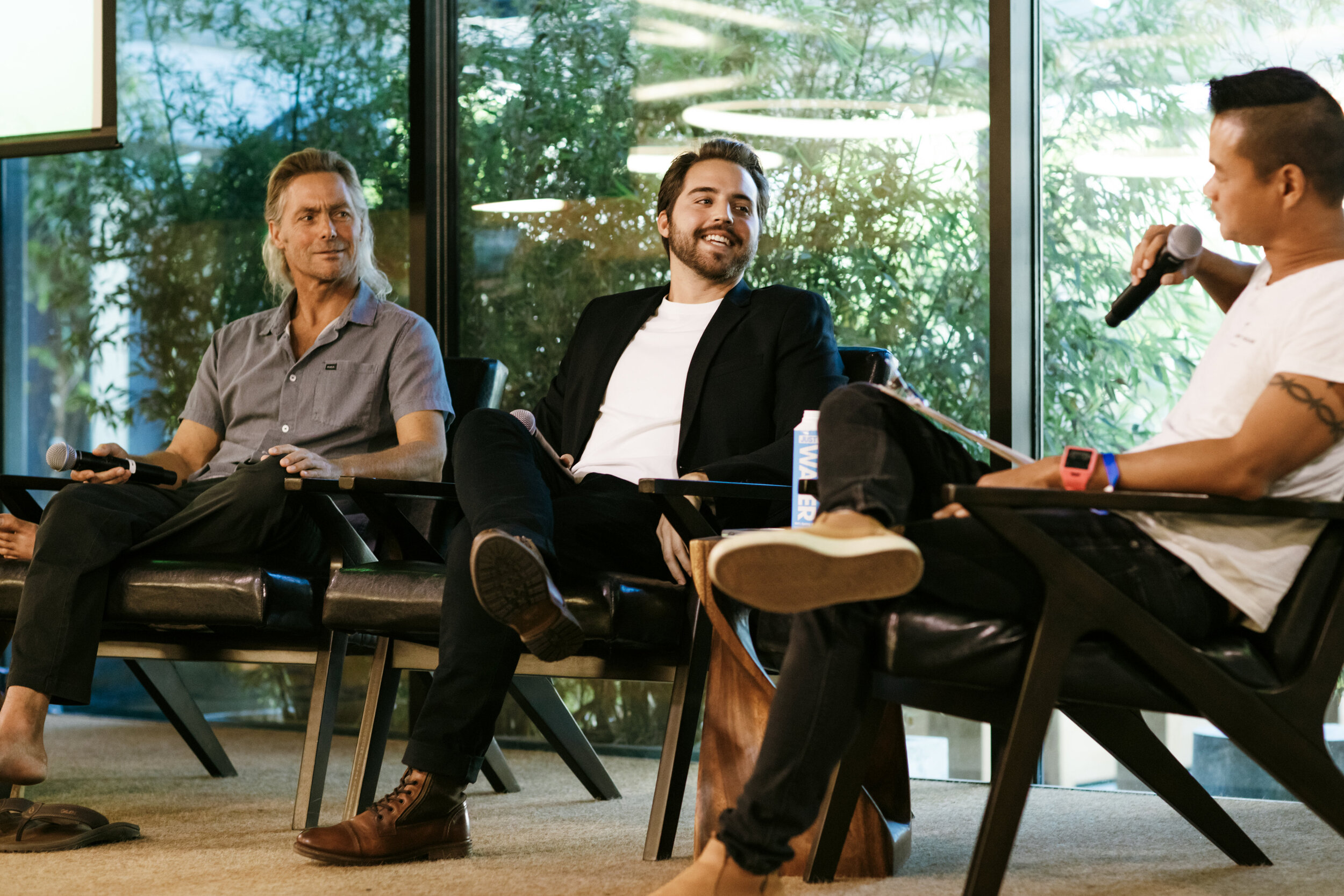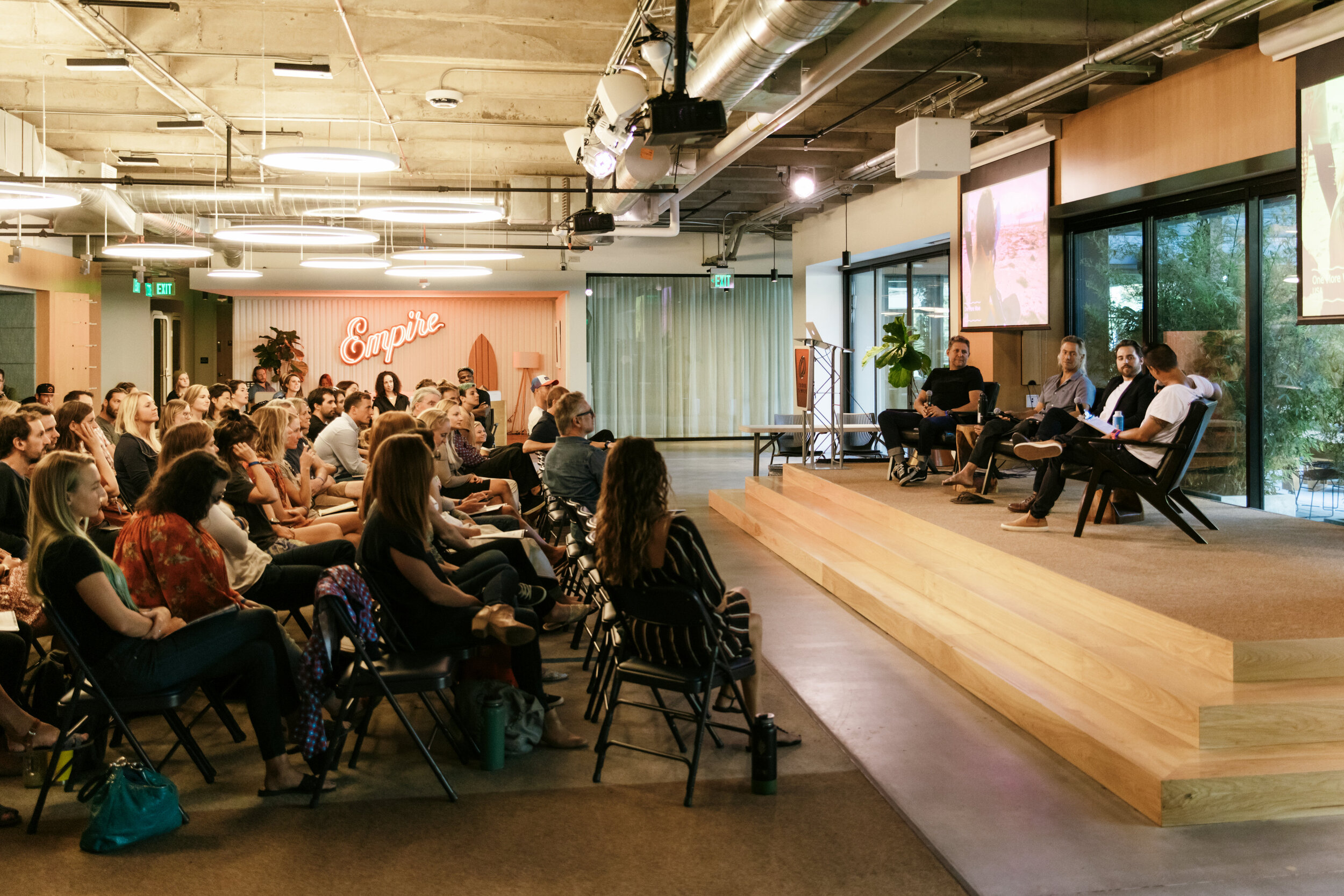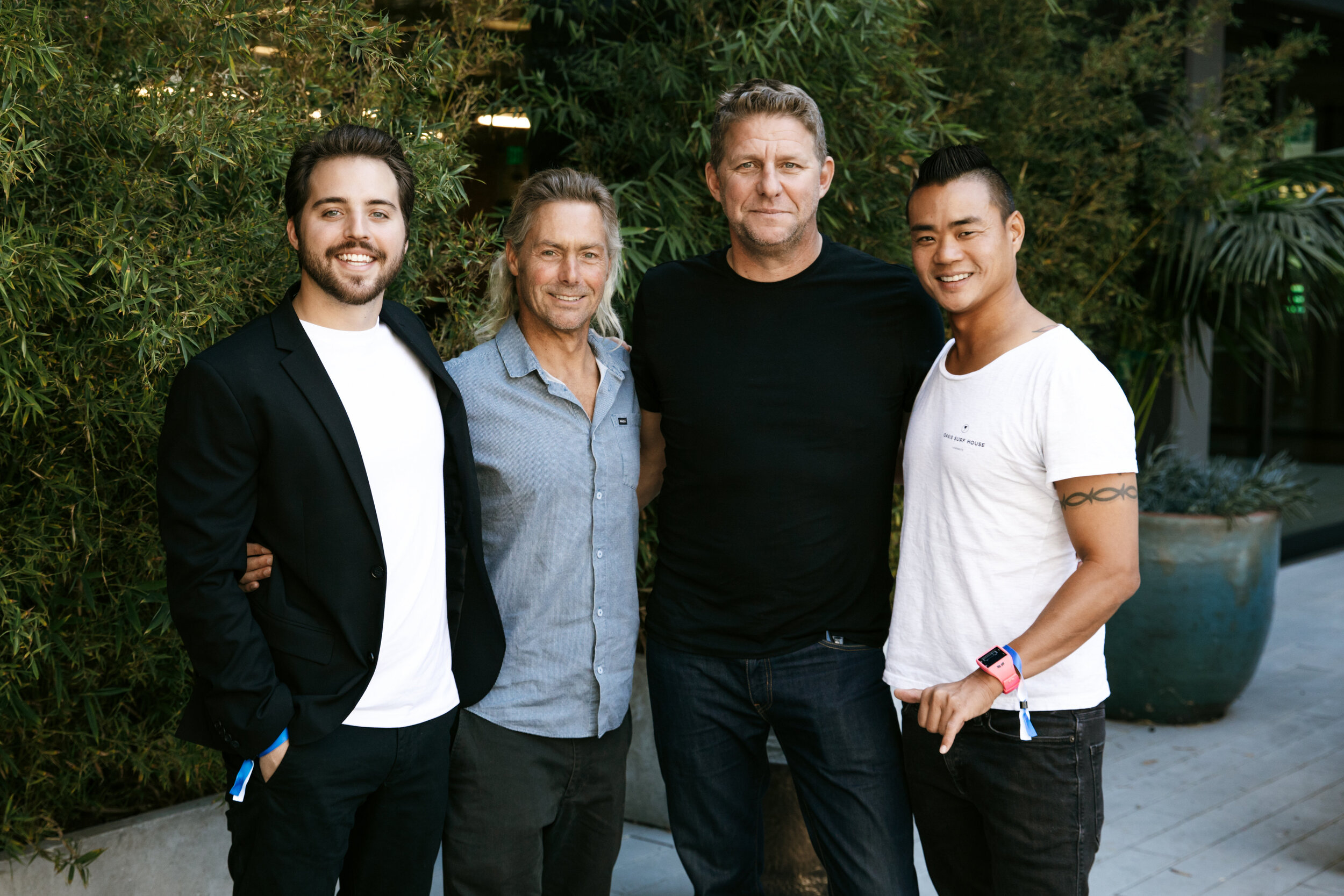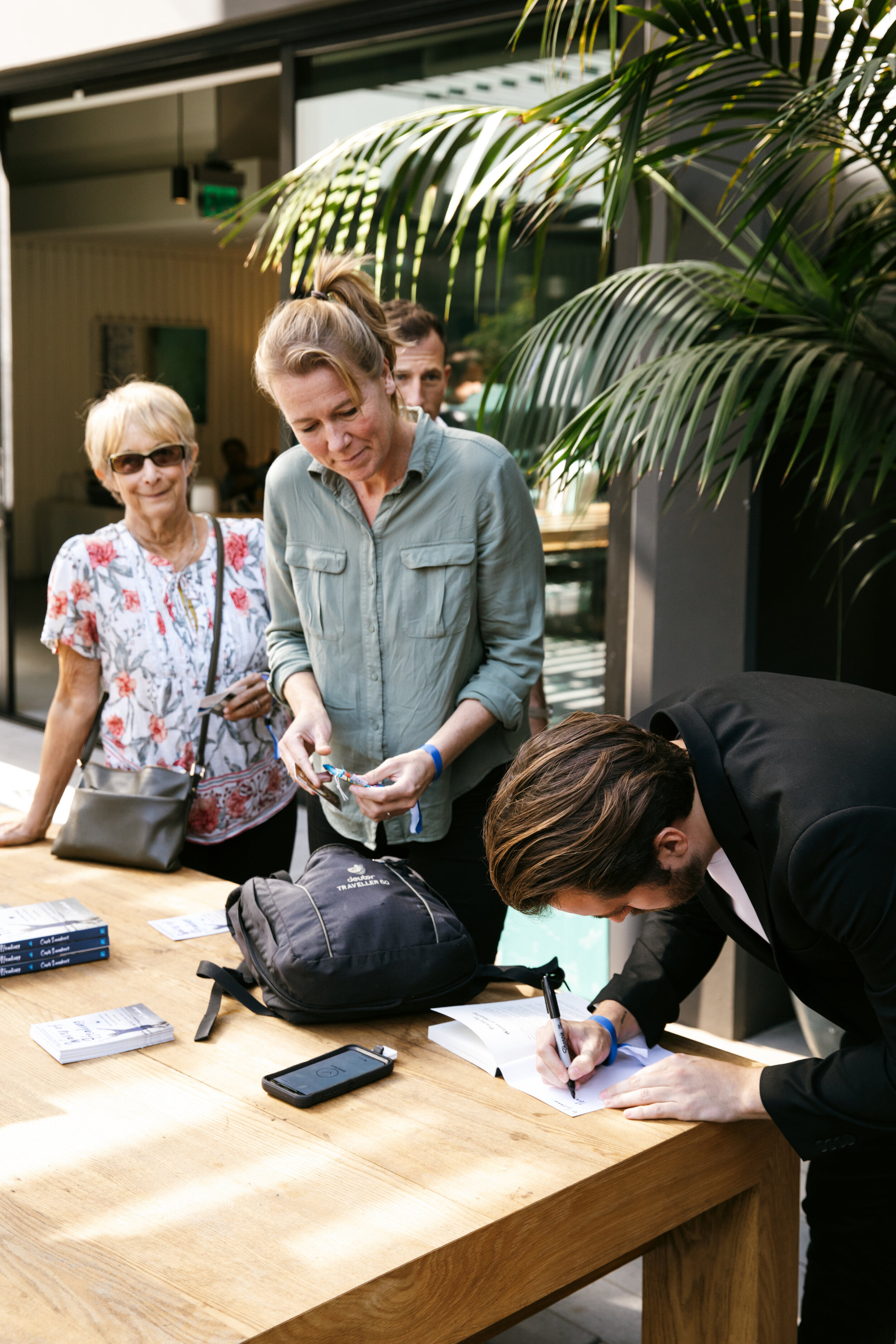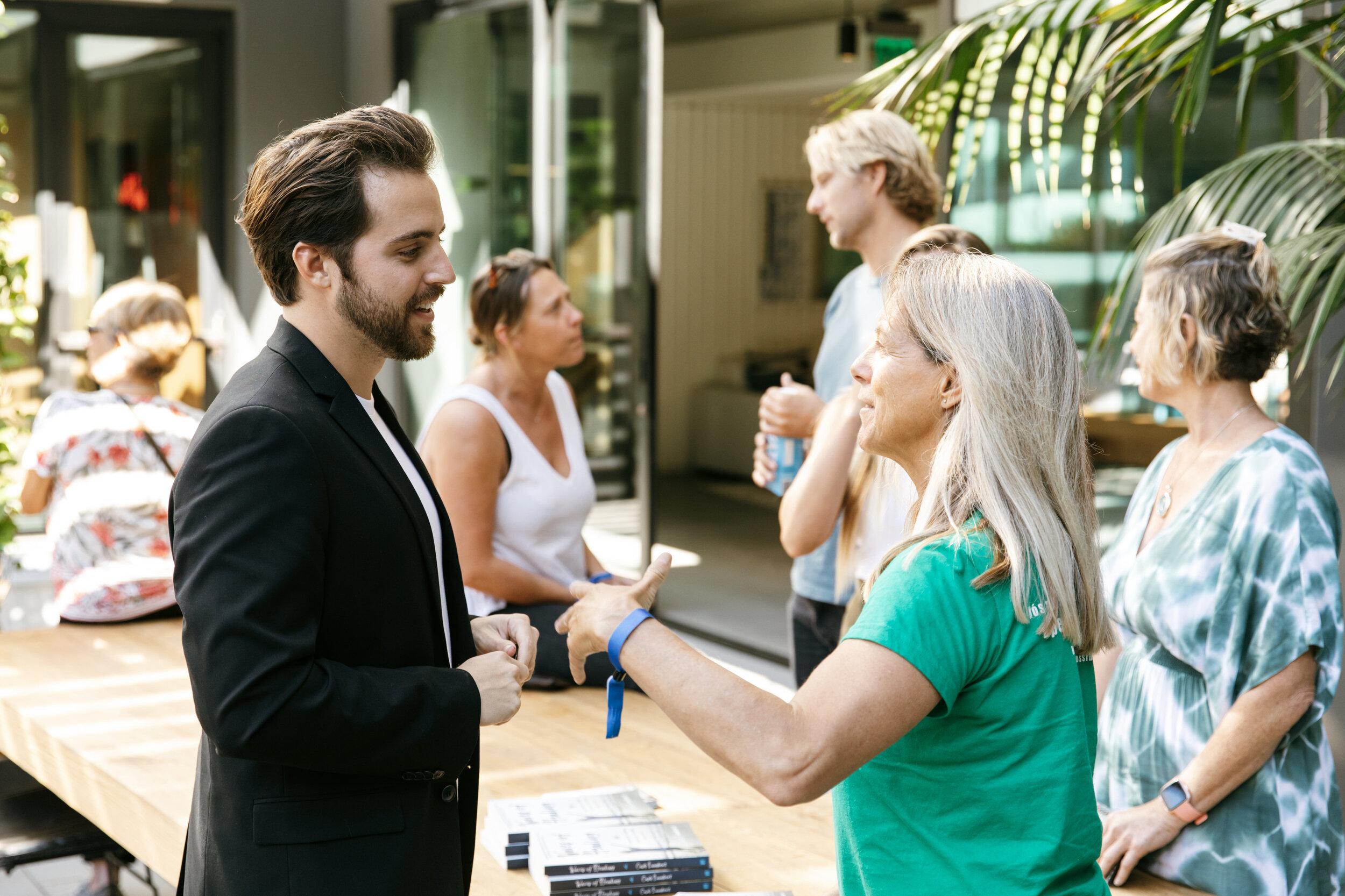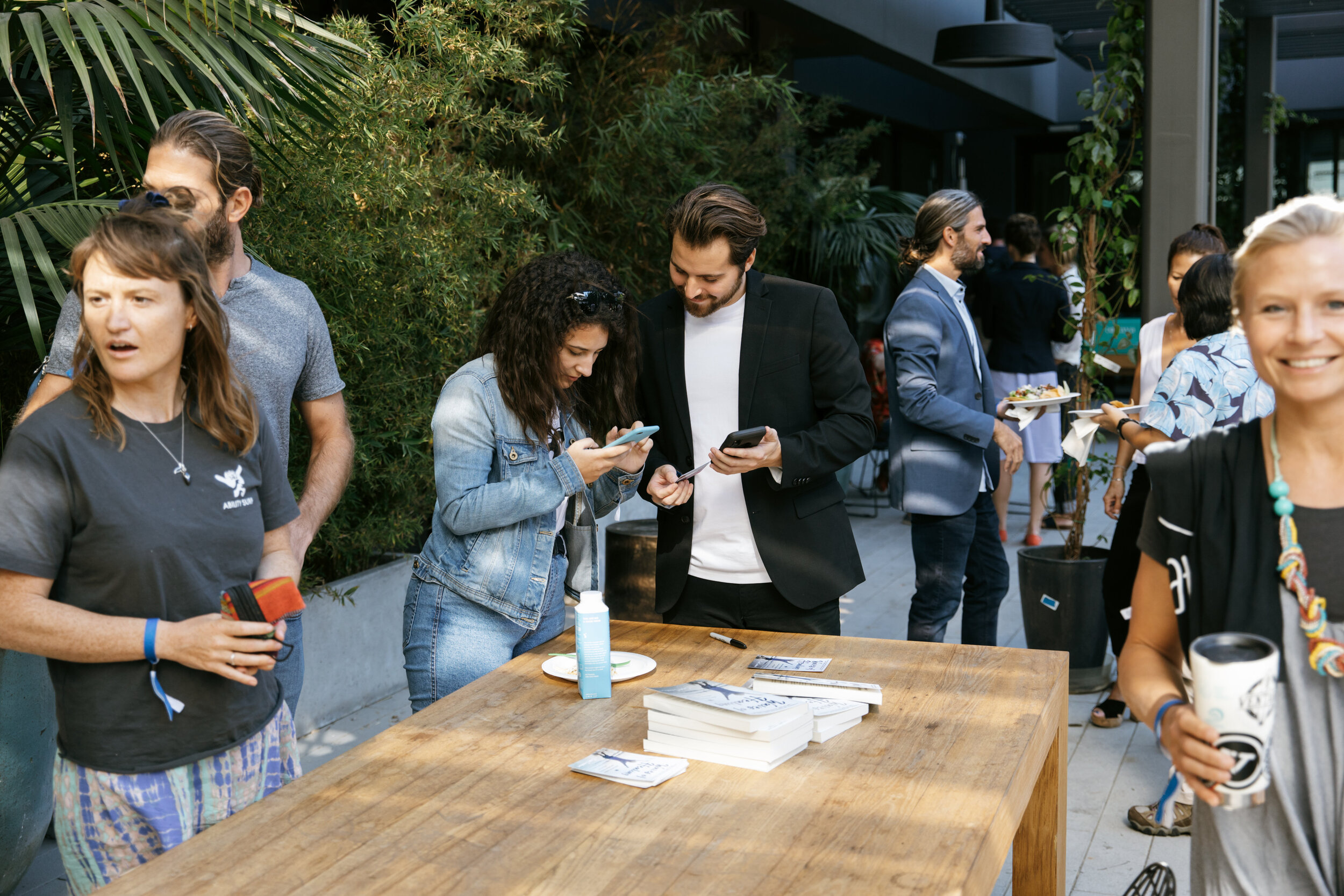When I pull up to Ian Walsh’s Menehune Mayhem at Maui’s Ho‘okipa Beach Park on a sunny Saturday in May, it looks like a full-on party. The bounce house is jumping. Groms are chasing each other on the sand with whipped-cream pies. There’s a PA system announcing heat scores, and you can hear the laughter in the parking lot.
It seems much of the Maui surf community showed up for the annual event—a two-day surf competition featuring 400 kids, ranging in age from 4 to 15 years old, competing in the small and windy waves on hand.
Grom contests like the Menehune Mayhem and similar events—Live Like Sion Gromfest, Rell Sunn Menehune Surfing Championships, North Shore Menehune Surf Contest and others—are ushering in a new generation of surfers and changing surfing’s image for the better.
A few years ago, upon returning to the US from a surf trip in Nicaragua, I was detained in a windowless room and had my belongings searched for drugs. When I asked the officials why they chose to search me out of the sea of people at customs, one of them, while checking the back pocket of a pair of boardshorts and finding nothing but surf wax, responded “because you’re a surfer.”
Reputations aren’t given, they’re earned, and surfing’s outlaw history is true. “Back in the day, it was party on, as everyone knows,” says 74-year-old Dave Riddle, North Shore mainstay and veteran surf coach. “There was the saying back then: ‘Win or lose we booze.’ But that lifestyle is in the past now. That’s not to say people don’t still have fun—they do. But surfing is taken way more seriously today. And [surfers] are staying out of trouble.”
This change in surfing is due, in large part, to older generations taking on the responsibility of being role models to the groms.
Ian Walsh’s Menehune Mayhem is a classic Maui surf contest with a purpose.
Ian Walsh’s Menehune Mayhem is a classic Maui surf contest with a purpose.
Ian Walsh’s Menehune Mayhem is a classic Maui surf contest with a purpose.
Ian Walsh’s Menehune Mayhem is a classic Maui surf contest with a purpose.
Ian Walsh’s Menehune Mayhem is a classic Maui surf contest with a purpose.
Ian Walsh’s Menehune Mayhem is a classic Maui surf contest with a purpose.
Ian Walsh’s Menehune Mayhem is a classic Maui surf contest with a purpose.
1/5
Ian Walsh’s Menehune Mayhem is a classic Maui surf contest with a purpose.
Ian Walsh’s Menehune Mayhem is a classic Maui surf contest with a purpose.
Ian Walsh’s Menehune Mayhem is a classic Maui surf contest with a purpose.
Ian Walsh’s Menehune Mayhem is a classic Maui surf contest with a purpose.
Ian Walsh’s Menehune Mayhem is a classic Maui surf contest with a purpose.
“The whole concept behind Menehune Mayhem was to create a surf event exactly how I wanted it when I was their age,” says Walsh, who was influenced by Shane Dorian’s Keiki Classic—another grom event that’s run on the Big Island for the last 25 years—which he surfed in as a kid.
One aspect that separates Walsh’s grom comp from your average surf event is that instead of just rewarding participants for their surfing skill, academic achievement is a cornerstone of the competition.
“The inspiration came from my mom,” Walsh says. “She was a teacher for 30 years at a public school in Maui, so I grew up understanding just how important that [education] is. The scholastic achievement became a way to reward kids for getting it done in the water and in the classroom.”
Over time, these awards grew from iPods, cell phones and laptops to $2,500 scholarships for Maui County high school seniors entering college. The goal was to not only reward the students but also to give them tools and resources to take the next step in their education.
“It is one of the most special scholarships I’ve ever received,” Louisa Buckingham, a Maui native, tells me over the phone. She attended the Menehune Mayhem for as long as she can remember, and the scholarship she received in 2019 helped her to pay for school supplies, textbooks and other items not included in her tuition at Georgetown University.
“The award empowers local kids to go beyond their comfort zone, learn from the mainland and bring those lessons back to Maui and incorporate them in the community,” says Buckingham. “I’m honored that the Walsh family would consider me for that.”
The effects of the scholarships have trickled down into the younger Maui surf community.
Walsh will be the first to tell you: The kids’ favorite part of the day is finally slapping a pie into his face. Ho‘okipa Beach Park, Maui.
“The GPA award at the Menehune Mayhem is always something we strive to achieve in school,” says Ty Simpson-Kane, fellow Maui native, Pe‘ahi charger and lifelong Menehune Mayhem participant.
Walsh’s contest is one of a few that promotes good grades. The North Shore Menehune Surf Contest—a grom event on Ali‘i Beach in Hale‘iwa that’s been going on for over 40 years—gives out a laptop or iPad to those with the highest GPA and positive teacher comments. “A big part of why our contest was established was to be a positive influence on our youth,” says contest co-director Ivy Blomfield. “All participants have an opportunity to turn in their report cards for consideration.”
And, if the kids want to take their surfing to the next step and compete in the National Scholastic Surfing Association (NSSA), they’ll need to maintain at least a 2.0 GPA. “Failing in school is not permitted in the NSSA,” says Janice Aragon, executive director of the NSSA. Like the Menehune Mayhem, the NSSA awards annual scholarships to competitors with the highest GPA.
Aside from promoting athletic and academic achievement, these events are also teaching environmental responsibility.
“At the Menehune Mayhem, we are taught a lot about how to reduce our single-use plastics,” Simpson-Kane explains. “We see firsthand the issues that plastics are causing to our oceans every day.”
Walsh prefers to let the kids get their hands dirty and teaches plastic and pollution awareness in a hands-on way. Each Menehune Mayhem starts with a beach cleanup, courtesy of the groms and event coordinators.
“Instead of sitting them down and teaching the participants verbally, we try to teach them by example,” Walsh says.
Helping young surfers adapt to the mental stress of the contest scene is part of these events too.
Friendly competition is crucial—whether in the lineup or a game of tug-of-war.
In the past, altercations on the beach were commonplace in surf contests, with breaking a board or hurling verbal abuse at the judging panel being seen as a rite of passage for some competitors. Because Menehune Mayhem awards “outstanding sportsmanship,” these young surfers are learning how to be respectful in a contest jersey.
“It’s good to care about competing, but it’s important to control that passion and have respect for the competitors,” Walsh says.
I asked Riddle if there had been a lack of mentorship in surfing’s past, a time where the beach-bum lifestyle epitomized the sport. “There was some guidance,” he said, explaining that it came from team managers and local shapers who cared about the next generation. “But nothing like what it’s evolved into now.”
He went on to explain that although there are drugs and alcohol in surfing’s colorful history, “the kids growing up today, they’re not looking at that. They’re looking at guys like Kelly [Slater]. They’re looking at John John [Florence].” They’re looking up to surfers who are committed to their sport.
Surf contests like the Menehune Mayhem give kids the foundation to push the surfing and surfers forward, in and out of the water.
“Keeping them in the ocean keeps them out of trouble and will always give the kids something to fall back on and create positivity throughout their life,” says Blomfield (North Shore Menehune Surf Contest contest co-director). “The ocean is a natural resource that will be there to help them through anything.”








